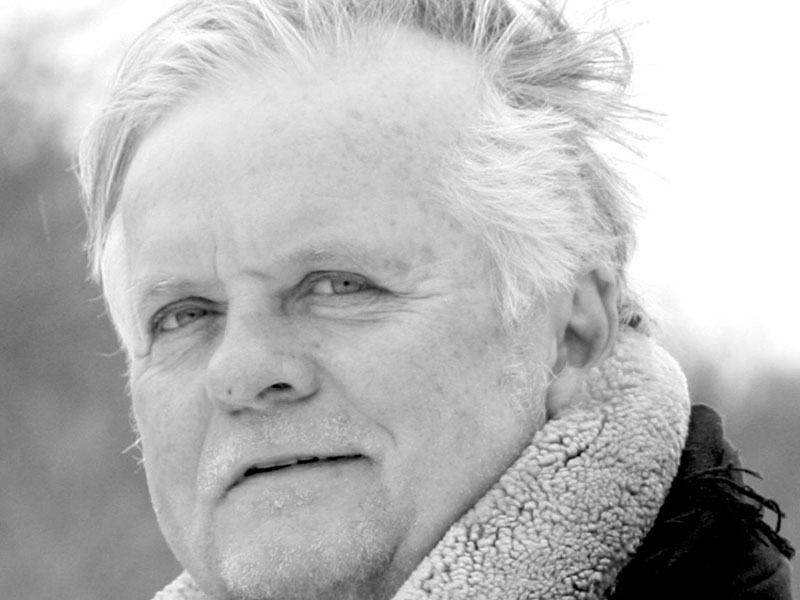Columnists
Sans frontière

Without borders: I think it was the piano stool that prompted the thought stream; maybe yet the blue jays and their acrobatics through the lacework of tall pines. Whatever it was, it got me going on the notion of divisions within society. Okay, a fairly heady topic, especially early morning when the long-absent sun has made a return: but first let me tell you about the stool.
You see, it’s one of those I describe as a parlour piano stool; you know the ones. Victorian style turned legs that finish on a claw foot; architecturally balanced, rising with a centre post that pivots as an adjustment to height. The kind where as a kid you took turns sitting on the round walnut seat while your cousin spun you around and the stool rose or lowered according to the direction of the spin; just before you slid off and hit the floor: yep, that one.
My inherited piano stool carries plenty of memories, but the most vivid are those of my grandmother sitting and playing, lost in the ivory reverie of her favourite songs. I think Let me Call you Sweetheart was one of those. You see the stool was delivered with the Lindsay upright piano she had long saved for and bought with ‘egg money’—in this case the money was from knitwear: scarves and mitts and socks in bold colours she knitted and then sold, her hands softened by the lanolin of heavy worsted wool that came from the mill in her adopted town of Grand-Mère, Quebec. The piano was sought as an antidote to deep feelings of isolation and loneliness experienced by my grandmother. Her name was Margaret Brown, known as Maggie to friends; she had immigrated to Canada from Brighton, England with her husband Charles and her two young daughters, one of whom would eventually become my mom. This is the part of the story where I proudly claim to be a direct descendent of Charlie Brown, ‘Chuck’ as Peppermint Patty called him in the comic strip and animated films.
The Browns had come to Canada for opportunity; grandfather Charles was a millwright and he was among the specialized tradesmen who were sought by the various company owners whose manufacturing plants—from pulp wood to chemicals—advantaged the surplus of hydro and water power derived from the nearby Saint-Maurice River. The Browns were one of ten English-speaking Protestant families in the town’s social hierarchy at the time when the dominant culture was made up of Frenchspeaking Catholics. Biases of language and religion caused the newcomers to be isolated in a small section of town while they made effort to foster acceptance. It’s the story of the immigrant; acceptance of the other.
Soon after the arrival of Maggie’s piano, music could be heard drifting from the Browns’ second floor apartment. On Main Street below, townsfolk, young and old could be seen lingering as Bach and Brahms comforted the pause of evening. The music was a contrast to the toetapping rhythms of the fiddle, spoons and accordion that accompanied the songs of the chanteuse of the mainstay population. Yet it was an appealing sound, and soon Maggie was asked to give music lessons to French-speaking students; she was invited to entertain at local gatherings; more still, Maggie began to jive with the fiddlers and dance callers at social events. It was the universal language of music that bridged the frontiers of culture.
That memory is what brought me to think of present day. Having a young son has enabled me to stay in tune with the determinations of our education system. My son, Luc, chose to sign up for the French immersion program offered by our Board of Education when he was about to enter Grade Four. Every year since his class has moved forward grade by grade as the program was expanded. Now five years later the pioneering group of students are still together and in midterm of Grade 8. The plan and hope is that the program will advance with the addition of Grade 9 and beyond.
We witness daily, especially in summer, how many of our French-speaking neighbours from Quebec enjoy the hospitality of our region. On an ongoing basis I notice how welcome signs outside of our local businesses have been adding ‘bienvenue’. Also perhaps soon we will see ‘la bienvenida’ in tribute to our devoted Spanish- speaking workers who leave their homes and families year after year to labour in our fields each season. They also shop in our stores.
My thought here is to inquire how the education system plays out in all of this when there are cries about lack of funding and key cultural programs such as art and music are cut. After 150 years since uniting as a country, we remain immune to the fact that we maintain a system of learning that reaffirms to our youth that language and religion require continued segregation. Our youth are caught in the ghettoes, in the silos of an education system hierarchy.
I believe we have evolved past the era of my grandparents and as a progressive step can now develop holistic formula to integrate languages and beliefs within one structure of learning: take down the out-dated and divisive borders. Importantly, encourage higher paths of understanding through art, music and language programs— places where all can openly converse in a worldwide dialogue to the discovery and benefit of everyone.
The blue jays now noisy in the pines as I sit here and contemplate how it is likely I wouldn’t be around if my mom hadn’t eventually met my dad in Grand-Mere; the French-speaking man who introduced himself to her couldn’t speak a word of English but hey, language is not a prerequisite for an invitation to dance. The old fancy piano stool ferments these memories as I sit by the open door of my studio, playing to the warmth of the January sun.

Comments (0)